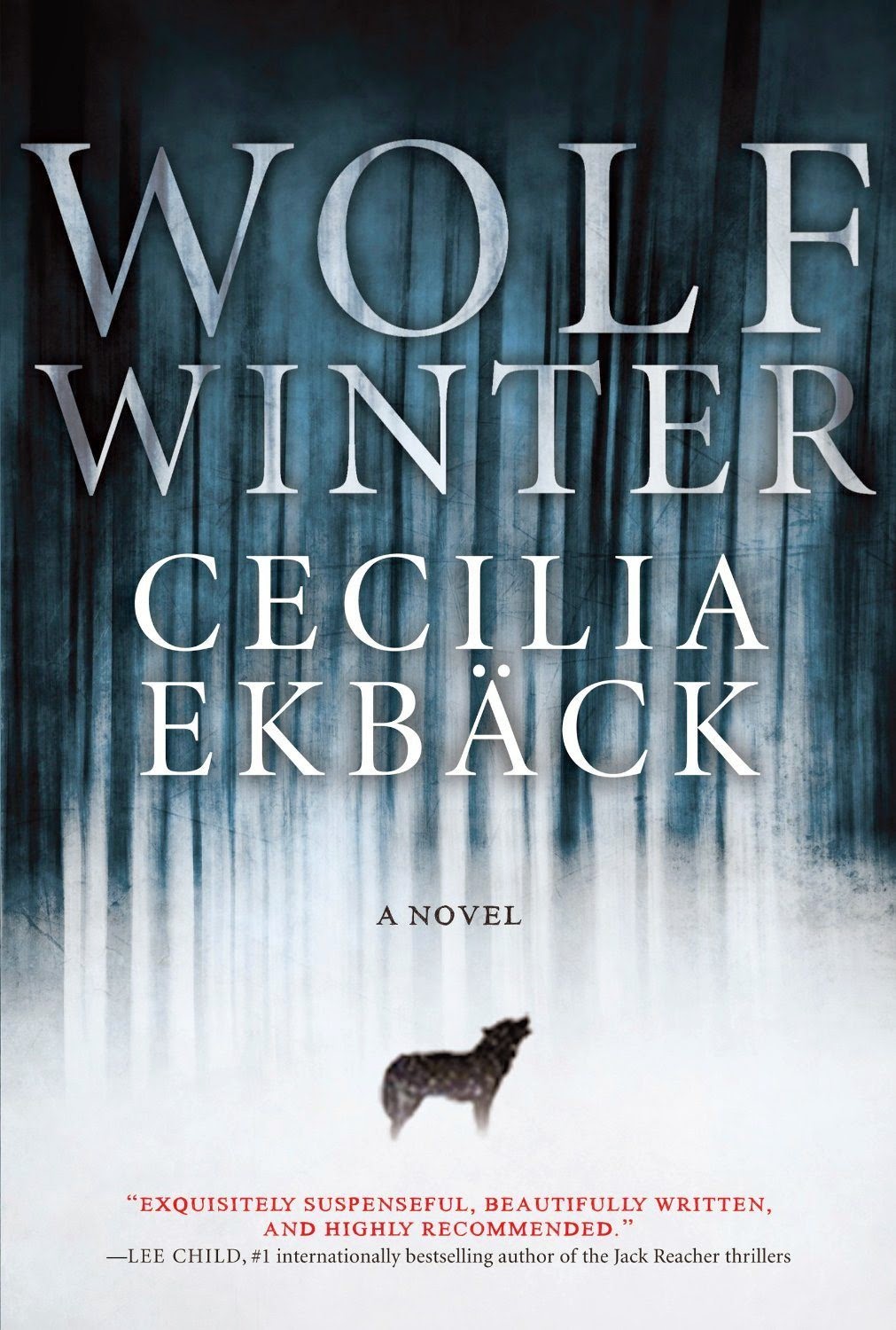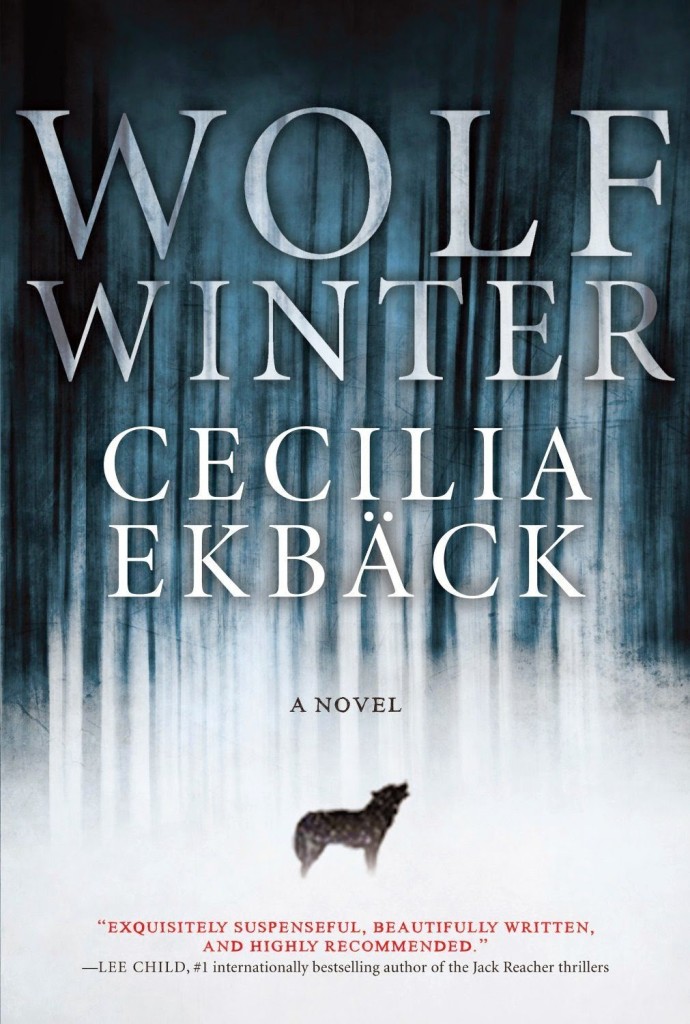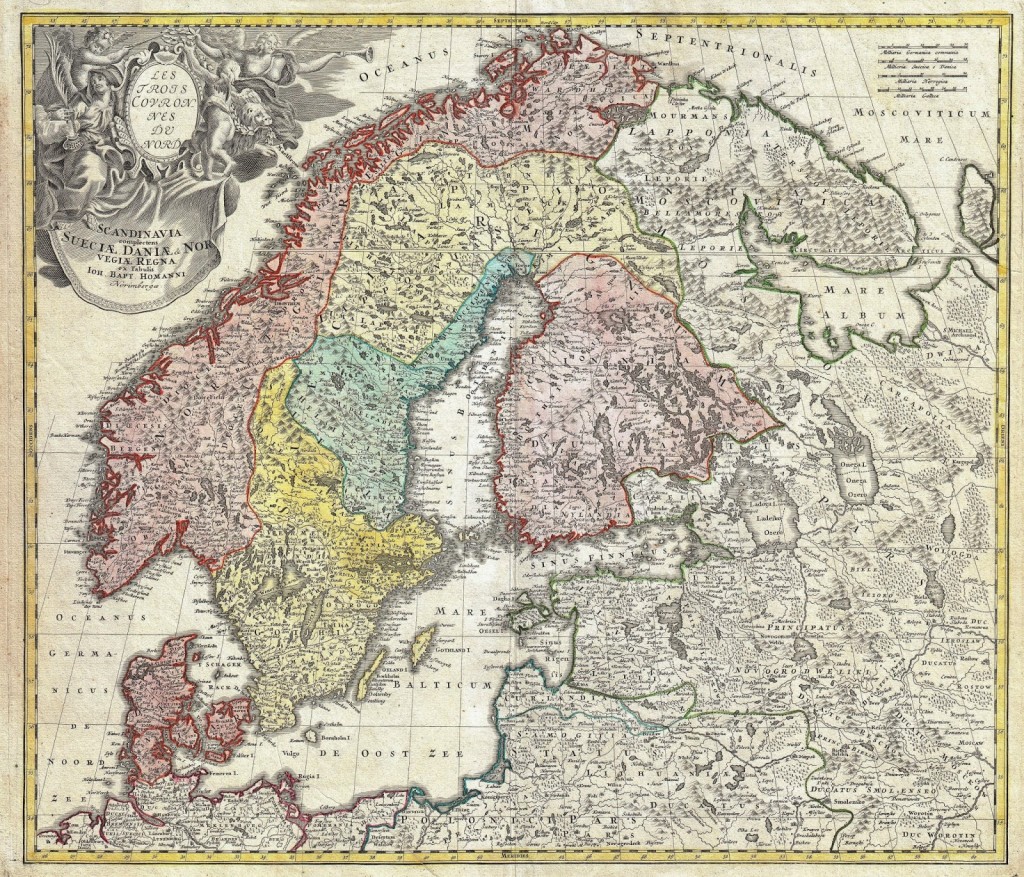
Wolf Winter, Cecilia Ekback
The winter of our discontent.
 The scene is Sweden’s interior wilderness: forests, lakes, marshes, and mountains. A smattering of families, referred to as settlers, living in wooden cabins occupy this territory alongside the native Sami, referred to as Lapps in this novel called Wolf Winter
The scene is Sweden’s interior wilderness: forests, lakes, marshes, and mountains. A smattering of families, referred to as settlers, living in wooden cabins occupy this territory alongside the native Sami, referred to as Lapps in this novel called Wolf Winter, 2015, by Cecilia Ekback. Already this is being given rave reviews, and rightly so.
The period is the early 18th century (1717), a transitional time for the kingdom of Sweden, as the Great Northern War rages on against its Baltic foes, the country is in decline and its leadership is in question. This is a powerful backdrop to this book, and one which I found plausible since Ekback has knowledge of the area. I also liken it to George R.R. Martin’s superb books, A Game of Thrones and the entire series of A Song of Fire and Ice. Both authors know how to create memorable scenes and backdrops to their novels, and in Wolf Winter, Ekback does with well. She takes her knowledge of Swedish history, like Martin, and parlays it well. As a reader you are slowly drawn into this world.
According to the author, Wolf Winter has a double meaning in her novel, referring to the harsh winter the characters must endure, as well as Sweden’s own trying time, which is very well detailed in this book, while it is attempting to maintain its Baltic dominion while its parliament tries to wrest control away from the king- King Charles (Karl) XII of Sweden- who was also nearing the end of his reign. He would die in 1718, which makes for an interesting background to the novel. Sweden’s own times of troubles, and the loss of power.
The main gist of the novel is a murder mystery, expanded to encompass other mysterious deaths in the Blackasen Mountain region. Accusations start to fly as more detail and evidence are uncovered from amongst the settlers.
The narrative is written through the perspectives of three contrasting characters – a priest, an independent-minded, Finnish mother of two, and her adolescent daughter (Fredericka). This was worrisome in that this can be hard to write, but in Wolf Winter this works well in the capable hands of its author.
 The priest is tasked with the investigation into the ghastly death of one of Blackasen’s residents. He engages the help of Maija, the willful Finnish mother, who quickly becomes the lead agent into the investigation.
The priest is tasked with the investigation into the ghastly death of one of Blackasen’s residents. He engages the help of Maija, the willful Finnish mother, who quickly becomes the lead agent into the investigation.
Some time later the daughter, begins her own mental journey into the region’s mysterious occurrences, as her new-found mystical powers enable her to communicate with the murder victim.
During the roughly nine-month period that the story takes place, life among the settlers and Lapps must go on.
The author provides ample descriptive prose of the surrounding nature, the changing seasons, and the day-to-day drudgery and isolation of the inhabitants’ lives as they struggle with a failed harvest, and fight to survive a tragically harsh winter (wolf winter).
Between the three prosecutors, the investigations into the various, seemingly unrelated deaths are further intertwined with broader political and religious repercussions.
The overall tone of the novel is justifiably, somewhat dark and depressing, in typical Scandinavian form.
But Ekback maintains a good pace and keeps the reader’s attention with the interplay of the main characters, their contrasting perspectives, lots of character development, and plenty of historical background with emphasis on the role of religion and its encumbent fear of mysticism.
Overall, a very well-written, descriptive historical gothic novel/murder mystery with several interesting twists. I was captivated with it, and hope she will write more novels soon. This is a grand scale novel for almost anyone who loves darker style writing and who enjoys the interwoven elements of the supernatural and religious tones of the characters. None of these people are quite what they seem.
If this type of story appeals, then I strongly recommend Michael Crummey’s,River Thieves, published in 2002 in hardcover, and in 2003 in paperback. It has a respectable 4.3 stars out of 5 on Amazon.com and was his debut novel.
This historical novel takes place in interior Newfoundland, at the turn of the 19th century. A British naval officer, Buchan, is tasked with opening relations with the native Beothuks. He enlists the help of white settlers (Peytons) as longstanding allegiances and grudges are brought to the surface. The stark landscape plays a pivotal role in the story as transportation into the interior is greatly dependent on the seasons.
As you might have noticed, the are several parallels between Wolf Winter and River Thieves. The power of the wordsmiths here are very welcomed, and I envision the continued success of both of these authors.
Both rely on rich imagery of the surroundings, tough, independent-minded characters, and competing ways of life between the native and settler communities, revolving around hidden conflicts and intrigues.

Tech Review: Android Lollipop
You May Also Like

Have Fun When Writing.. well Anything
October 27, 2011
If You Want to Write: Thoughts on a Writer’s Life
February 7, 2012


One Comment
Amy
Excellent review Morris.